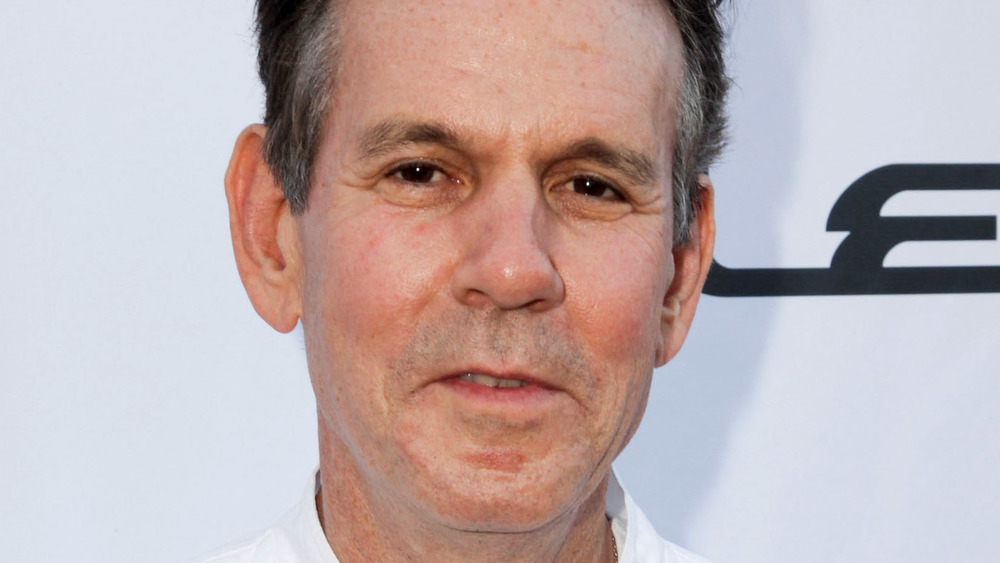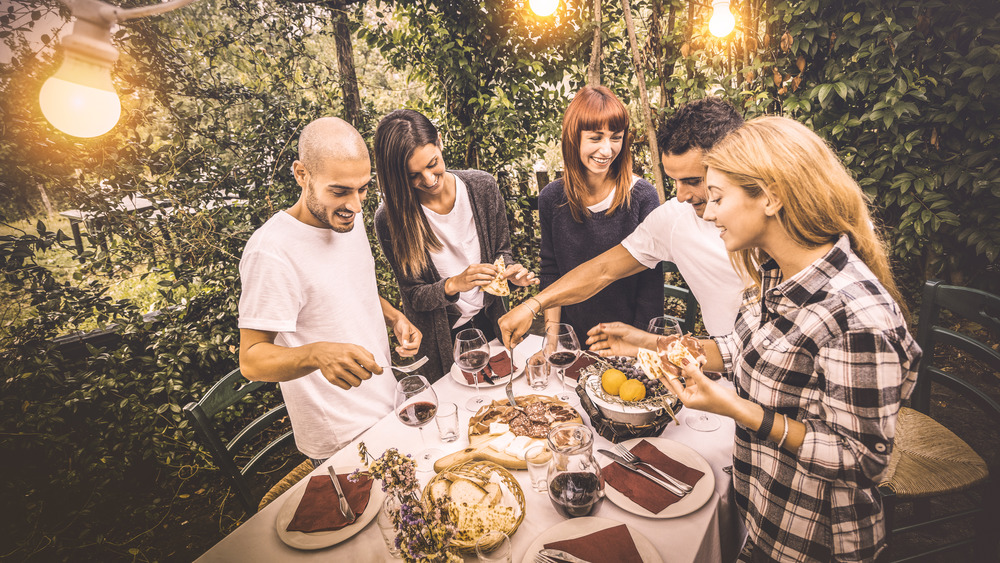This Is Thomas Keller's Biggest Problem With Farm-To-Table
While the farm-to-table trend may have gotten its start back in the hippie days (Earth's Best Organic credits chef Alice Waters with popularizing the whole "eat local" thing in the '70s), it's actually been around ever since the dawn of agriculture. Prior to the invention of truck refrigeration systems, "farm to table" was just business as usual for anyone who didn't want to eat spoiled meat and rotten produce. In the 2010s, however, farm-to-table grew to be one of the hottest concepts going, even if not all of the claims made regarding the provenance of each menu item proved to be strictly true. A 2016 investigative report by the Tampa Bay Times entitled "Farm to Fable" unearthed such gems as a "F*** Monsanto Salad" made with produce that most likely did contain GMOs as well as "locally sourced" quail that came from Wyoming, a state some 2,000 miles from Florida.
Renowned restaurateur and chef Thomas Keller, speaking with MyRecipes' Extra Crispy, told that publication that he finds the whole farm-to-table concept "absurd." Not only does he point out the "duh" factor, saying: "throughout history, food has been grown on a farm and brought to a table," but he also feels that fetishizing the concept of eating local comes at a price.
What farm-to-table advocates get wrong
One of the holy tenets of farm-to-table is supposed to be the fact that food goes directly from farm right to table, which is possible only in the event of restaurants literally located on farm grounds and offering extremely limited menus. In most cases, farm-to-table restaurants tout local suppliers, but there's seldom any consensus on the exact meaning of "local." While Wyoming-to-Florida is definitely outside any accepted definition of the term, Keller notes that some farm-to-table fans claim nothing can come from further than 25 miles (tough for NYC restaurateurs not within an easy commute of too many farms), while others say up to 200 miles is acceptable. Keller thinks sticking to this rule is ... well, a load of fertilizer of the most organic, bovine-produced variety.
"Local, to me, is an irrelevant term," Keller told Extra Crispy. "What's more important is quality." He gives the example of one hypothetical farmer who's local but grows subpar carrots, and another who's outside the acceptable distance radius but puts a lot more care into his carrots. If farmer #2 has no local restaurants to sell to, he may go out of business, leaving the mediocre but geographically convenient farmer as the supplier of choice. Also, it's not like we're going to give up coffee, sugar, pepper, and other products that can't be grown locally. Keller calls strict adherence to the gospel of locavore "stupid," and says he's not afraid to speak out before this trend goes too far.

